Project HERizons: Career pathways for women graduates in Kenya launch
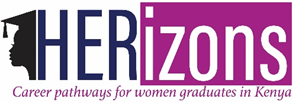

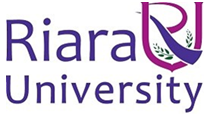

Project aims
Project HERizons seeks to integrate a gender lens into technology education to produce enterprising women graduates capable of securing employment in Kenya's fast-growing digital technology industry. Growth has not translated into equitable representation for women within the technology sector.
This gender inequality is global but more visible in developing countries, including Kenya. Despite progress, women remain underrepresented in the technology sector. The discrepancy between women graduates in technology and their employment in technology-related companies requires urgent attention. Therefore, the overarching purpose of Project HERizons is to address the persistent gender inequality in women's employment in technology by strengthening a transitional pathway to women's employment through knowledge development, capacity building and role modelling.
Given the context, we believe that learning needs to happen practically, adapting the successful pathways to employment by women leaders/role models, where possible. Thus, Project HERizons will provide female students with an academic-industry platform necessary for developing employability skills and access to networking with female leaders in diverse tech sectors. This method ensures that the curriculum prepares women graduates for employment and a disseminating approach to transitioning women graduates into employment, focusing on the Kenya context.
Project's objectives
- Co-create and co-produce HERizons within a supportive university-led ecosystem – a safe space based on action research involving students, academics, and industry practitioners, generating high-quality tools and resources for supporting women's employment in Kenya.
- Capacity building: Build the capacity of academics and female students through targeted training that enhances their knowledge of employment pathways and equips students with employability skills.
- Support, evaluate and learn: to pilot an approach to role modelling pathways to employment where students mirror the career trajectory of role models, capturing and sharing these as short case studies and thereby gaining confidence in their career aspirations.
- Embedding knowledge into practice – identifying and developing a university-led ecosystem for public engagement to put the insights from the Project into practice for long-term impact.
Project activities
The project will strengthen the employment pathways for women graduates through collaboration activities between Riara University (Kenya), The Open University (UK) and industry ecosystems (EldoHub). The project activities focus on women as university students needing employability skills and career women as industry role models. The project activities consist of:
- Project Launch: The project was launched on 27 March 2024 at Riara University and online.
- Role model engagement: Students will be assigned a role model and will engage in individual and group meetings with the role model.
- Capacity building: Skills development training will be delivered through virtual webinars and a face-to-face workshop at Riara University.
- Student Showcase: Students will share their experiences with the project team and stakeholders.
- Public/stakeholder engagement: A final dissemination event for the public and stakeholders at the completion of the project.
Project team
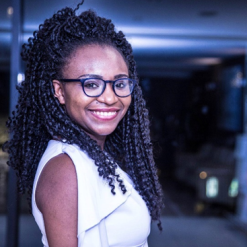
Principal Investigator Miriam Mbah-Amanze is a Lecturer in Law at The Open University Law School. Miriam lectures across The Open University LLB and LLM programmes, teaching modules such as Business and Employment Law, European Union Law, Dispute Resolution, Business, Human Rights and Corporate Social Responsibility. As a researcher, her interest centres on public procurement, human rights and social inequality. Miriam has several publications and research projects addressing societal issues such as modern slavery, child labour and gender inequality. She has also completed numerous consultancy projects funded by international financial institutions such as the World Bank and the Inter-American Development Bank. Miriam holds a PhD in public procurement law and a professional qualification (Postgraduate diploma in legal practice) from BPP University.
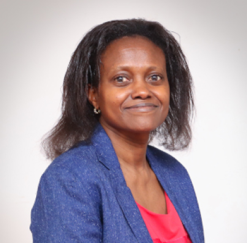
Project Lead (Kenya) Florence Kimani is a Lecturer at Riara University. She is passionate about Information Systems and is currently pursuing a PhD in Strategic Information Systems at the University of Nairobi. She holds a Masters in Management Information Systems from the same university (University of Nairobi) and a Bachelor of Science in Computer Science from Kenyatta University. Additionally, she has professional certifications from International Business Machine (IBM), Oracle and Cisco. She has been dedicated to mentoring the youth, especially in career development and personal growth. For these reasons, mentorship has been part of giving back to the community hence the project HERizons.
.png)
Co-Investigator (UK) Michael Ngaosong is a Professor in Entrepreneurship at the University of York. Prior to joining the University of York, Michael was a Professor of Entrepreneurship and Head of Department for Public Leadership at The Open University, where he is a Visiting Professor and affiliated with the Centre for Social and Sustainable Enterprise (CSSE).
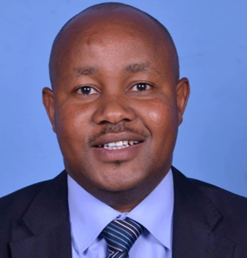
Co Investigator (Kenya) Nicholas Mwaura Kinyanjui is the Dean of Students at Riara University. Nicholas has a proven track record in education for sustainable development research and training, graduate employability research and training, educational leadership, teaching, alumni relations, quality assurance, and resource mobilization, spanning over 15 years in learning institutions. Nicholas is a Doctoral Fellow at the Centre for Sustainable Development – Ghent University Belgium.
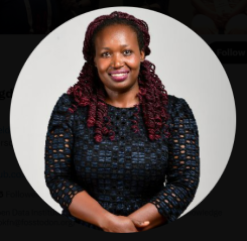
Project Industry Partner visionary computer scientist Chepkemoi Magdaline is a force for good in Kenya's tech scene. The Founder and Executive Director of EldoHub, a trailblazing education and innovation platform, she's empowering a new generation with the skills to tackle Africa's challenges. Over a decade of experience has honed Chepkemoi's expertise in harnessing technology, entrepreneurship, and research. Her passion lies in bridging the digital divide, particularly in rural areas. Chepkemoi co-designed the impactful Sasakazi initiative. This program has onboarded over 6,000 young tech professionals with a remarkable 90% success rate in finding jobs on completion. Her leadership as the Association of Countrywide Innovation Hubs Chair further cemented her role in igniting innovation and entrepreneurship across Kenya. Chepkemoi's journey is an inspiration. From her rural roots to becoming a tech leader, she champions creating opportunities and nurturing talent in underserved communities. Her unwavering commitment is building a brighter future for Africa.
Funding body
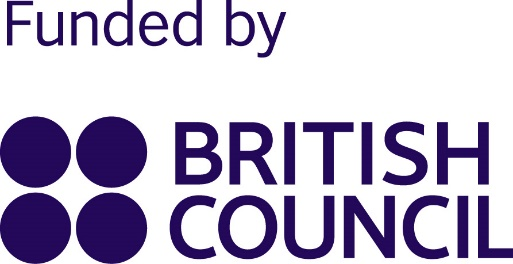
Supported by funding from the British Council's Going Global Partnerships programme.
Going Global Partnerships supports universities, colleges and wider education stakeholders around the world to work together towards stronger, equitable, inclusive, more internationally connected higher education, science and TVET.
For more information, contact the Principal Investigator: [email protected]